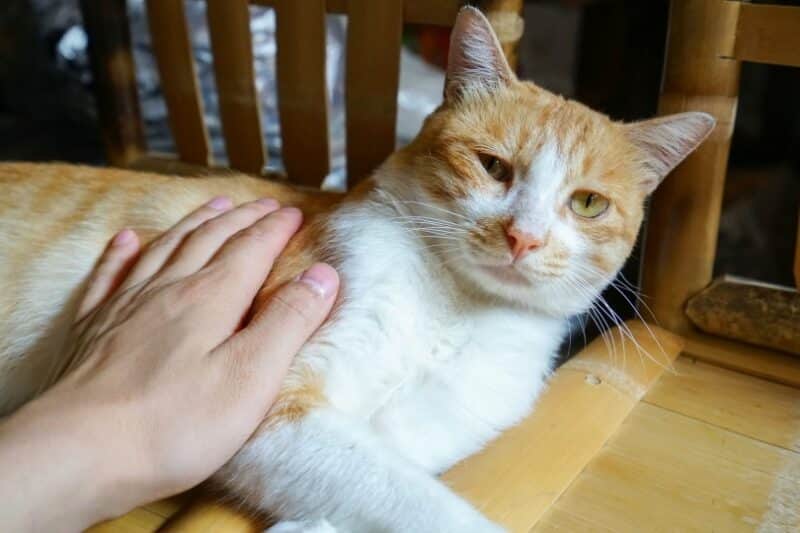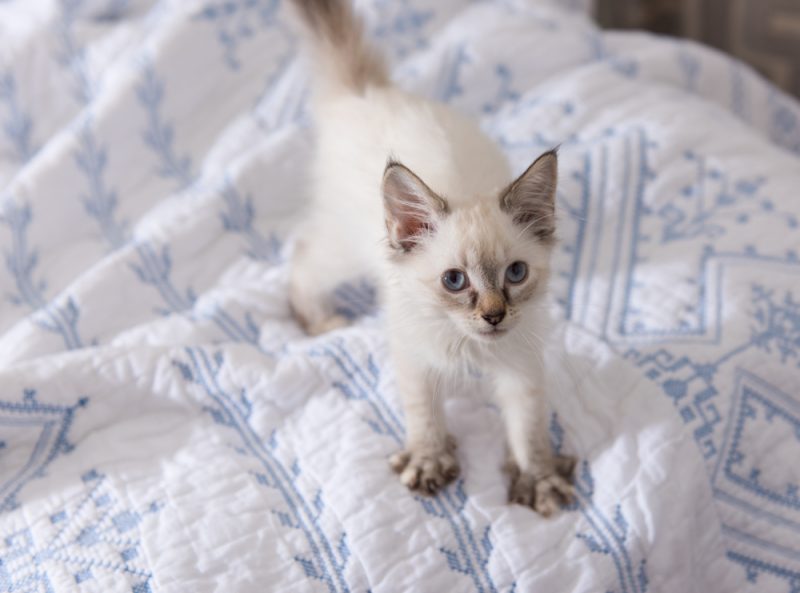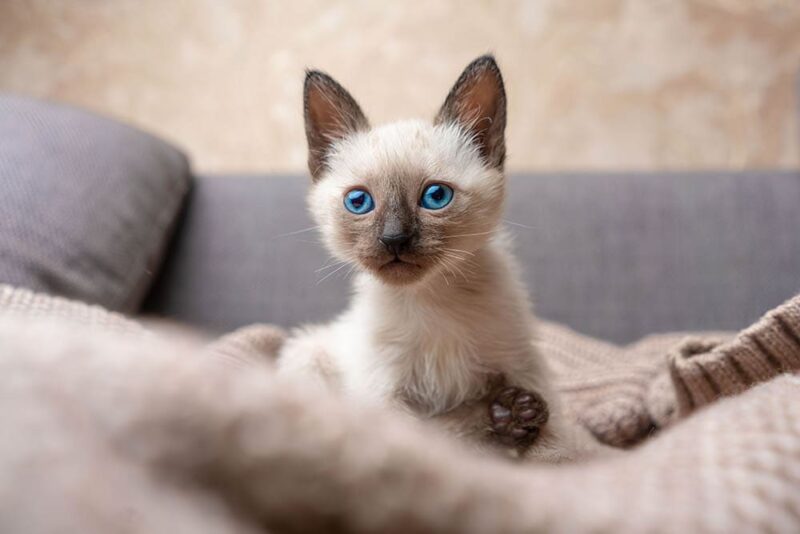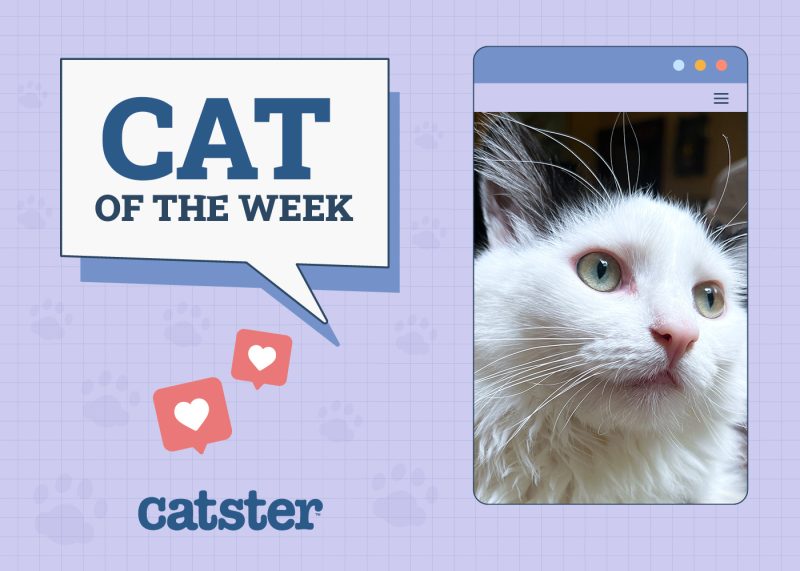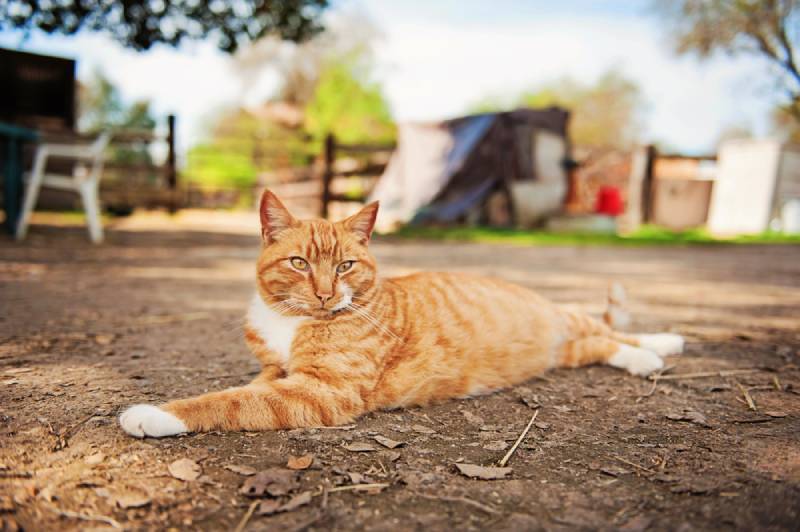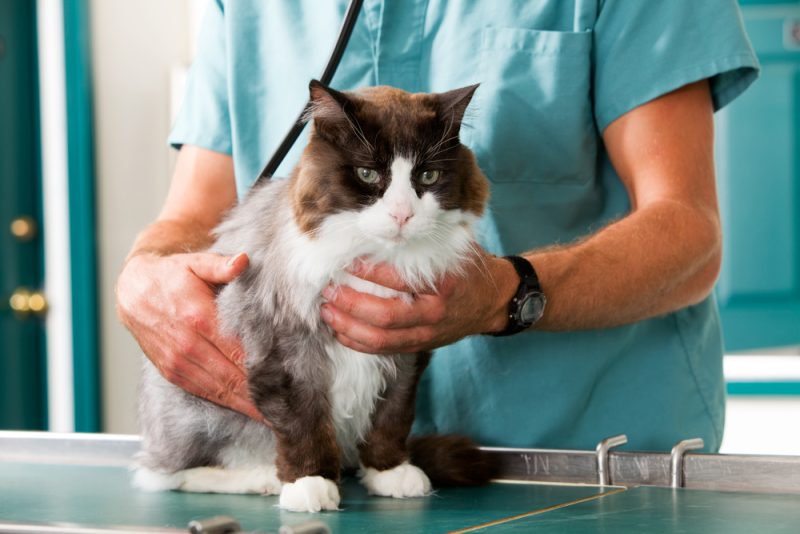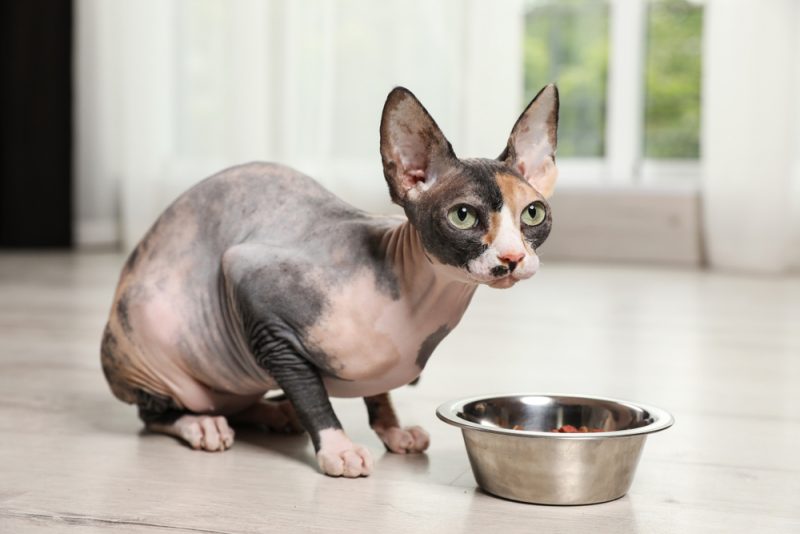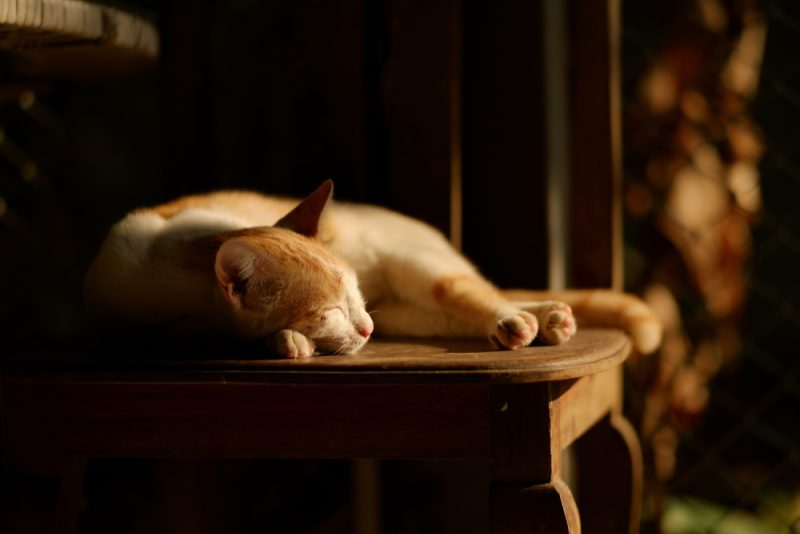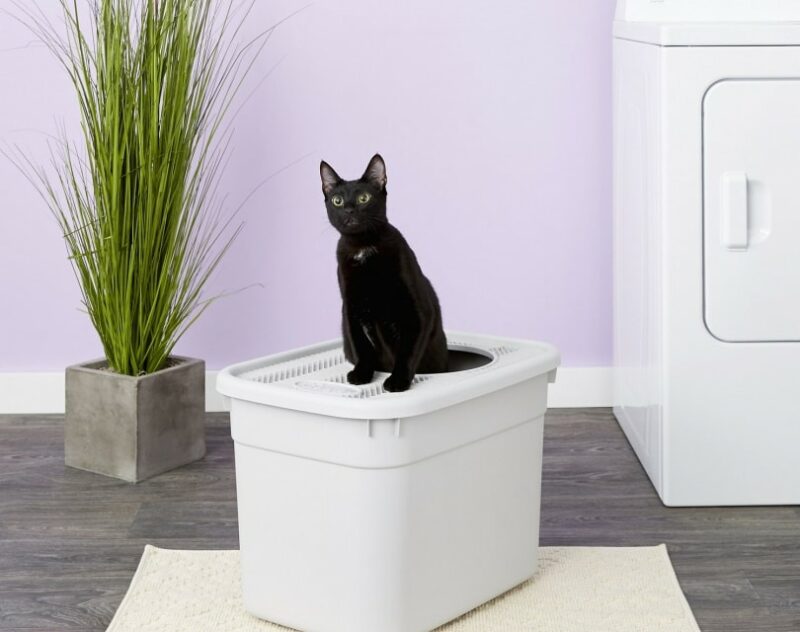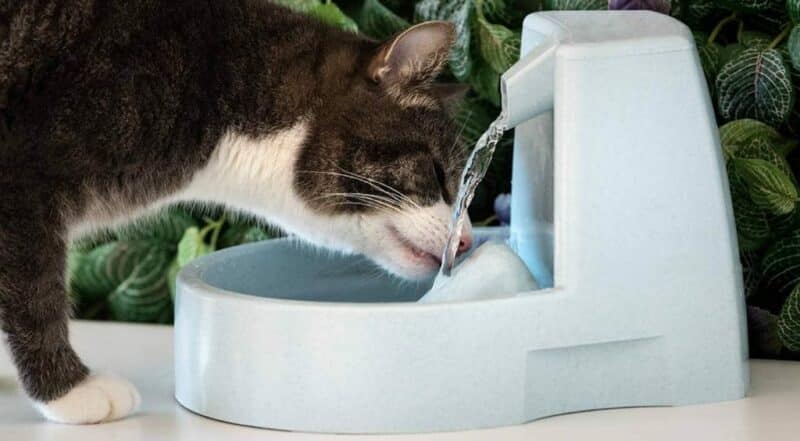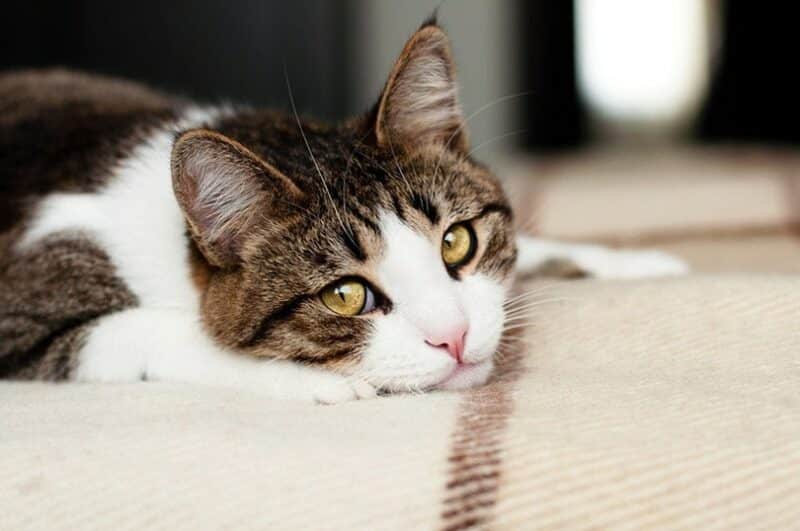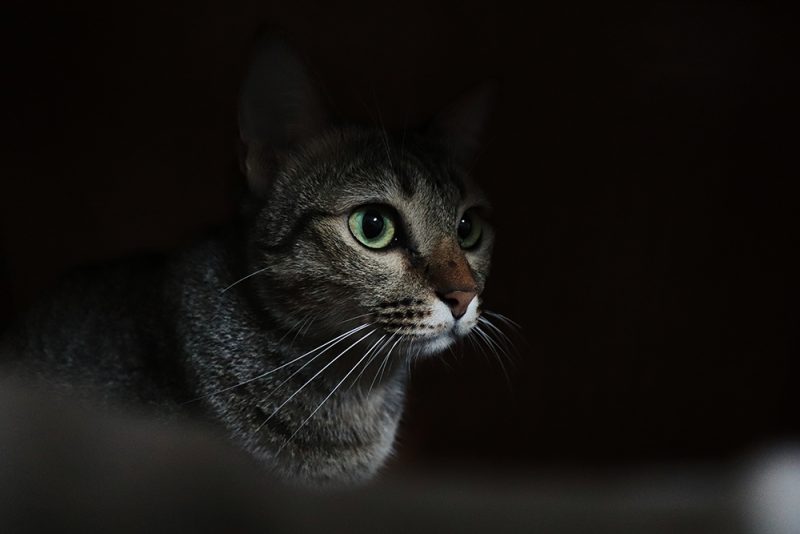In this article
View 5 More +Our cats are beloved members of our families, living longer and healthier lives than ever before. It’s important to realize that with longer lifespans, veterinarians and pet owners are seeing age-related changes in our feline family members, including cognitive changes.

What Is Cognitive Dysfunction in Cats?
Feline cognitive dysfunction is also referred to as kitty dementia. Cognitive dysfunction is a gradual change that happens over an extended period. Rapid changes may have a different underlying cause.
Typically, brain and cognitive changes occur in senior cats, with them often at least 10 to 15 years old. Cats of any breed can develop cognitive dysfunction.
What Are the Signs of Cognitive Dysfunction in Cats?
Signs of cognitive dysfunction vary between cats, with some showing only one or two signs that are difficult to detect and others with significantly more. Some of the signs to watch for include:
- Increased vocalization, especially in the evening hours
- Disoriented
- Seeming lost even in a house they’ve lived in for years
- Wandering off
- Forgetting to eat or wanting to eat even if they just ate
- Urinating or defecating outside of litter pans
- Changes in behavior (e.g., being reactive or nervous)
- Fluctuations in sleeping and wake cycles
- Staring off into space for extended periods
There’s a process in pets and people with cognitive dysfunction that tends to be called sundowning. It refers to the fact that some animals and people show more signs of cognitive changes later in the day, like after the sun goes down.
If your pet is showing these signs, we suggest you speak to a vet.
If you need to speak with a vet but can't get to one, head over to PangoVet. It's an online service where you can talk to a vet online and get the advice you need for your pet — all at an affordable price!

What Are the Causes of Cognitive Dysfunction in Cats?
The main thought behind why cognitive dysfunction develops in cats is the presence of beta-amyloid plaques in the brain. The protein accumulates in the brain, eventually slowing blood flow to parts of the brain, which inevitably leads to neuronal cell death. Changes that we associate with cognitive dysfunction can also have a root in other health conditions.
Some examples include:
- Cataracts leading to vision changes or even complete blindness
- Arthritis leads to pain climbing in and out of the litter box, so the cat stops going into the litter box
- Kidney failure or diabetes leading to excessive urination, which may occur outside of the litter pan
- Hyperthyroid kitties are often more vocal in the evenings and may want to overeat during the day
- Hypertension has been linked to vision loss in cats
- Even dental disease can affect your cat: they might not want to eat with a painful mouth or act more withdrawn
Diagnosing Cognitive Dysfunction in Cats
Diagnosing cognitive dysfunction is challenging in pets. In cats, your veterinarian will want to perform a thorough physical exam, checking for discomfort from dental pain or arthritis, ocular changes, and even skin changes that could suggest anxiety.
They will likely recommend several diagnostic tests because there are several things to rule out:
- Blood work to check kidney values and other measurements
- Urinalysis to rule out urinary tract infection
- Radiographs to assess for arthritis
- Thyroid panel to rule out hyperthyroidism
- Blood pressure monitoring to check for hypertension
Your veterinarian may refer you to a neurologist to perform an MRI to look for brain changes. They’ll likely also perform a spinal tap to check for infections.
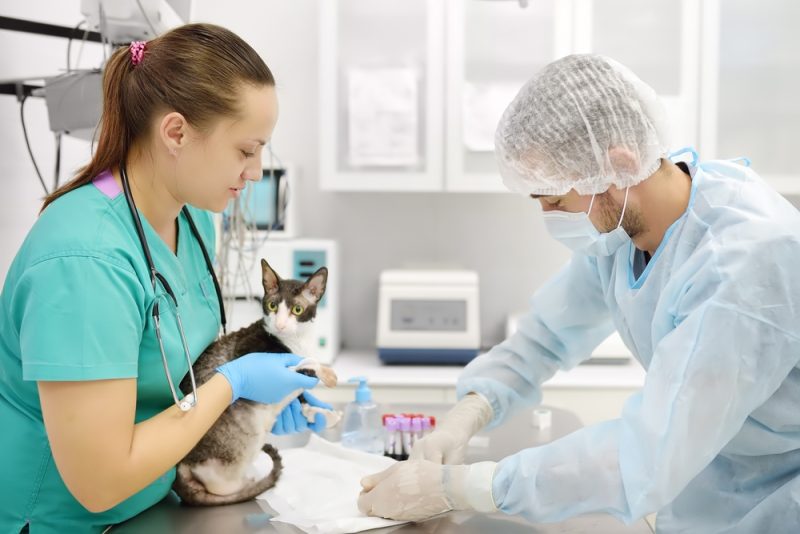
How Do I Care for a Cat With Cognitive Dysfunction?
First things first, your vet will want to treat any underlying health conditions that could be contributing to the appearance of cognitive dysfunction. The veterinarian may recommend dental cleaning and extractions to treat diseased teeth. Hyperthyroidism can be treated with methimazole.
Consider a medication like Solensia as a monthly injection for arthritis pain in cats. Gabapentin is commonly prescribed for both anxiety and neurogenic pain.
You can also try different litter pans for your cat, such as ones with a lower lip, so they don’t have to step as high if they’re uncomfortable or alternatively, you can try litter box ramp.
Diets high in vitamin E and antioxidants may have brain health benefits and slow the progression of cognitive dysfunction. Other supplements that might be beneficial include:
- SAMe (s-adenosyl-methionine)
- COq10
- Omega-3 fatty acids
Talk to your veterinarian about melatonin to help your cat sleep at night.
Don’t make sudden changes within the house. If you have to move furniture, try to navigate your cat around the new locations so they learn where everything is, especially if they have vision changes.
Consider not bringing new pets into the environment, which could stress your cat more.
Enrichment is beneficial for these kitties. You can put food in a puzzle toy or treat dispenser so your cat can manipulate it to get the kibble out.
Pheromone products, like Feliway Pheromone Diffuser, help cats have less stress or anxiety. Your veterinarian may prescribe a behavioral modifying medication, such as fluoxetine or amitriptyline.

Frequently Asked Questions (FAQ)
How long does a cat live with dementia?
Cats can live several years with dementia, and it doesn’t have to impact their lifespan at all. The most significant issues are managing any underlying health problems to keep your cat comfortable and what you can handle. Some people have issues if a cat is waking them up all night. Significant disruptions within the human-animal bond could mean it’s time to consider euthanasia.
How can I improve my cat’s quality of life with dementia?
You can try a few things to keep your cat’s quality of life at an acceptable level:
- Limit changes within the house
- Don’t allow your cat outside unsupervised
- Consider setting lights on timers to help clue your cat to different times of day
- Limit stress but offer enrichment activities, such as puzzle toys or playtime

Conclusion
Cognitive dysfunction is a severe condition affecting cats that can drastically impact you and your cat’s quality of life. Work with your vet to try and pinpoint underlying causes that may be treatable, and above all, be patient with your kitty. This is scary for them as well, and they will need your support.
See Also:
- Feline Cognitive Decline: Vet-Reviewed Signs, Diagnosis & Treatment
- Solensia for Cats: Vet-Reviewed Uses & Effectiveness
Featured Image Credit: 毛 祥, Unsplash

